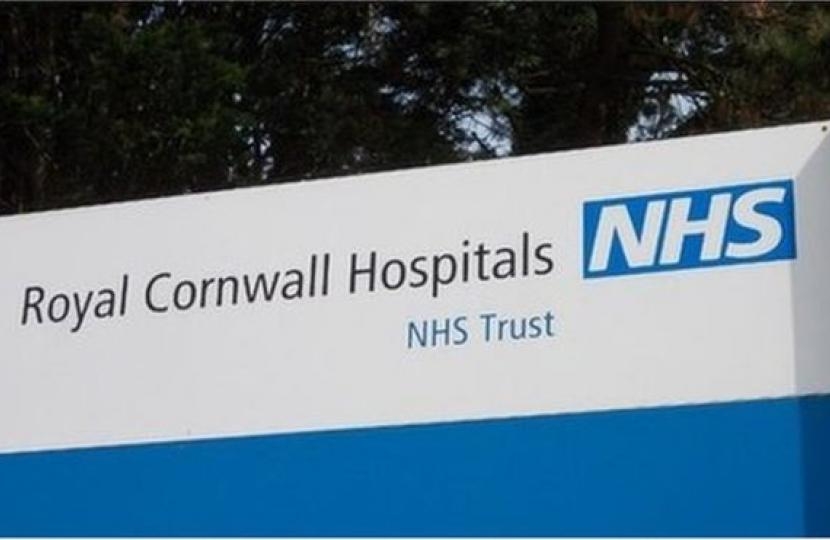
George Eustice, Member of Parliament for Camborne, Redruth and Hayle has today welcomed the news that over £13 billion of debt will be written off as part of a major financial reset for NHS providers.
From 1 April, over £13 billion of NHS debt will be scrapped as part of a wider package of NHS reforms announced by the Health Secretary today. The changes will provide much needed financial support during this unprecedented viral pandemic, as well as laying secure foundations for the longer-term commitments set out last year to support the NHS to become more financially sustainable. This is part of a package of major reforms to the NHS financial system, designed in a collaboration between the Department of Health and Social Care and NHS England, which will begin from the start of the new financial year.
This package is launched in combination with a simpler internal payment system to help NHS trusts in dealing with the coronavirus (COVID-19) response, which was agreed with NHS England last week. This significant change will mean hospitals will get all the necessary funding to carry out their emergency response, despite many hospitals cancelling or limiting their usual services such as elective surgery or walk-in clinics due to the virus.
Local MP, George Eustice commented, "The Government's decision to write off NHS debt as part of a major financial reset for NHS providers will help hospitals to plan for the future and invest in vital services. Here in Cornwall, Royal Cornwall Hospitals NHS Trust will have £42,594,000 wiped clear and I and my Cornish colleagues will continue to work hard to ensure that Cornwall receives the financial certainty to plan and deliver their emergency response to Coronavirus."
Health Secretary Matt Hancock said, "As we tackle this crisis, nobody in our health service should be distracted by their hospital’s past finances. Today’s £13.4 billion debt write off will wipe the slate clean and allow NHS hospitals to plan for the future and invest in vital services. I remain committed to providing the NHS with whatever it needs to tackle coronavirus, and the changes to the funding model will give the NHS immediate financial certainty to plan and deliver their emergency response."
While many NHS trusts manage strong finances, under the existing rules, some took out loans to plug financial gaps in their day-to-day (revenue) or capital (infrastructure) budgets. 107 trusts have an average of £100 million revenue debt each, with the 2 trusts with the highest debts reaching a combined total of over £1 billion. Under the new rules set out in a letter to all NHS trusts, should hospitals need extra cash this will be given with equity, rather than needing to borrow from the government and repay a loan.
The letters also include details on every local area’s capital budget for 2020/21, providing certainty to the NHS for the new financial year and enabling investment in vital longer-term infrastructure upgrades as soon as possible. These budgets come on top of the capital facility the government launched in February to ensure the NHS has access to whatever extra capital investment it needs, without charges, to respond to the COVID-19 outbreak.

